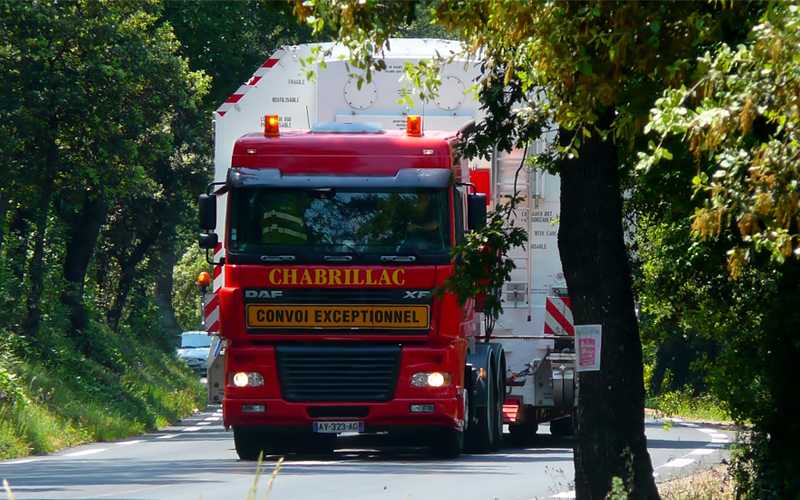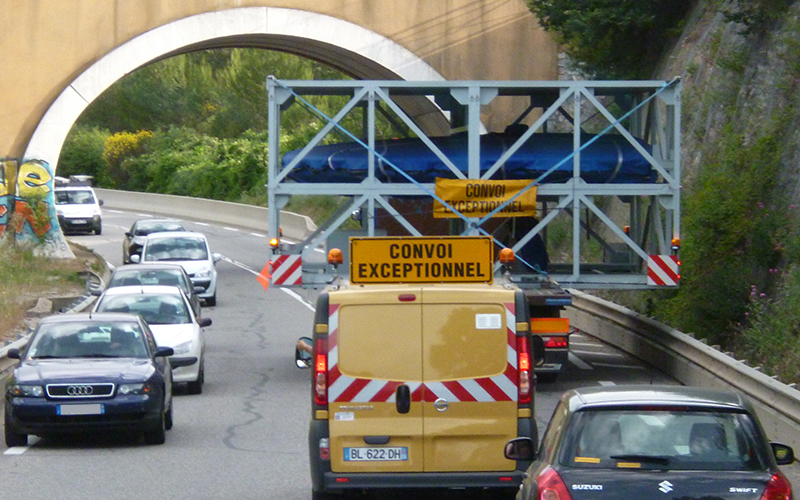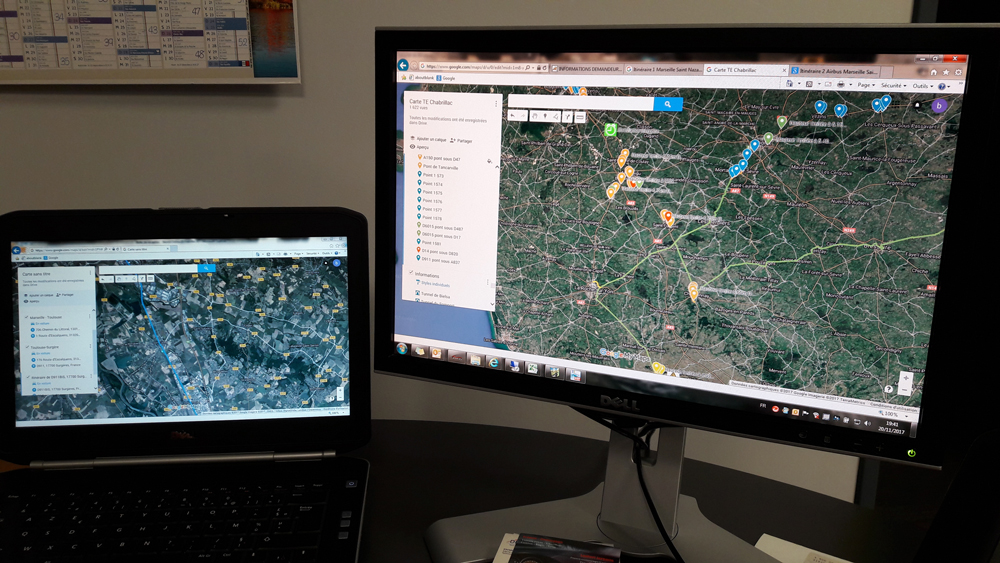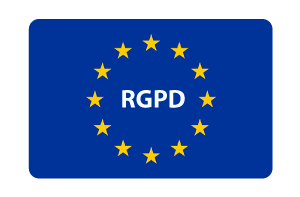Wide load transport
Wide load transport is a specialist sector of freight haulage that is used by many areas of industry to transport oversized parts or items that they both manufacture and use:
- The energy sector: transformers, wind turbine shafts or blades, pipelines, offshore stations, etc.
- Construction and public works: bridge decks, construction beams, industrial chimneys, etc.
- The agricultural sector: combine harvesters, tractors, silos, etc.
- Shipbuilding: yachts, ship subsections, etc.
- The iron and steel industry: industrial presses, large sheet metal, etc.
- Industrial robotics: flexible workshops
- Aircraft construction: wings, engines and other aircraft subsections, airport boarding bridges, etc.
- The space industry: launcher components, satellites, etc.
- Defence: military equipment
- Art: sculptures or sculpture components
- and many more besides...
This type of transport:
- Is strictly governed. In France this is done by:
- The standard public road transport contract for indivisible objects
- The Decree of 4 May 2006, amended by Decree 2017-16 of 6 January 2017 and the Decree of 28 February 2017
- Needs vehicles that are often unusual and highly specialised


For exceptional transport with high added value
The provision of exceptional transport is limited to a few road transport companies. A lot of preparatory work is necessary before service delivery, in order to:
- determine the means to be used, such as the type of vehicle, support, means of stowage, etc.
- identify the route to be taken
- obtain regulatory approvals, all differing from one country to another
- carry out any research into the works of art
- manufacture stowage or lashing equipment
- research the obligations and restrictions pertaining to the authorisation
Oversized cargo journeys are prepared weeks or even months in advance.
The vehicles used are non-standard vehicles with specifications to meet load constraints: length, height, weight and width. They can be lowered, separated, extended, multi-line, directional, modular, and often a combination of these different features.
Our exceptional transport liability
As they involve public traffic, wide load haulage journeys are prepared with care. It is the responsibility of the carrier to:
- Study the route and list the sensitive check points. The completion of the journey must be the realisation of the research previously carried out.
- Arrange and check the correct stowage of the transported goods in accordance with the terms of the relevant contract/agreement.
- Check and adhere to the obligations and restrictions of the authorisation during a journey.
- Ensure the compliance of any convoy or escort vehicles such as pilot cars, guides or the police.
- Ensure the route is followed
- Ensure the safe arrival of the cargo
Our made-to-measure transport solutions
Here at Chabrillac, once an exceptional transport request is received, a pre-study is conducted to determine our ability to perform the operation should an order be placed.
Once the order is received, our manager initiates and monitors all preparation and service delivery procedures:
- Applying for permits in France or abroad through our network of colleagues and specialist consulting firms
- Carrying out route recognition if required
- Approaching various private or public organisations, for example municipalities, EDF, SNCF, etc., if the disassembly of street furniture or cables is required, and many others in order to authorise the journey.
- Preparing cargo plans and thereby determining the methods and means to be used for stowing the cargo during the journey.
- Assigning trained and experienced staff
At the customer's request, Chabrillac can provide a transport plan to demonstrate that the different stages of the journey have been taken into account.

Please note the following important information:
- The Decree of 4 May 2006 amended by :
- Decree of 28 March 2011 regarding the escort of exceptional transport
- The Decree of 2 May 2011 regarding the training of personnel for accompanied/escorted journeys
For more information, access the regulatory table for escorted haulage in France.
Since 2012, this Commission has been chaired by Jérôme Pasdeloup, President of SAS Transports CHABRILLAC.
Over the last 5 years, the CMI has been working to :
- secure the participation of escorts
- simplify the rules for obtaining exceptional transport authorisations
On the first point, the CMI has achieved significant progress, such as traffic facilities for exceptional transport, and continues its work of securing journeys in collaboration with law enforcement agencies.
On the second point, included in the simplification dossier put in place by the government, the work of the CMI led to the amendment of the Decree of 4 May 2006 by the Decree of 28 February 2017. It establishes in particular the declarative system for category 1 journeys and the creation of networks 72-94 and 120T to facilitate validation of the requested routes.

